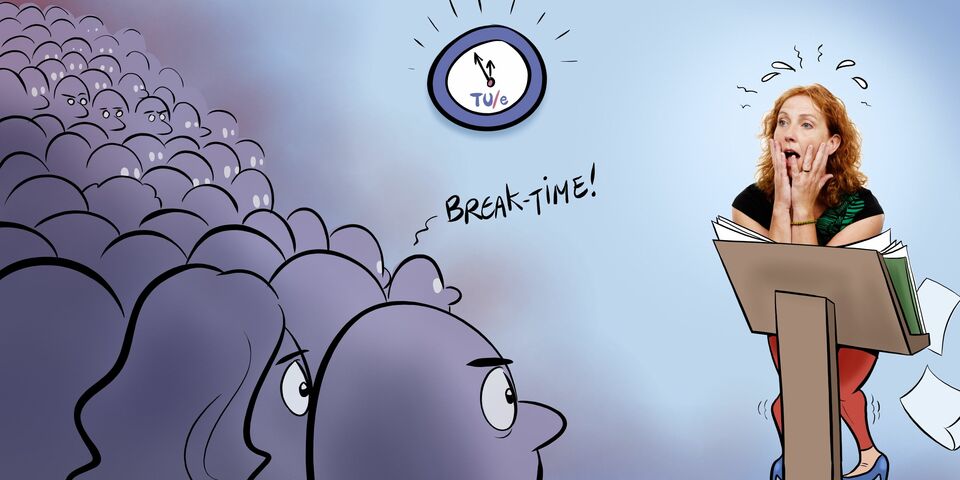Brainmatters | Give me a break!
The most successful way of generating stress in a psychological experiment is to set the Trier Social Stress Task. Participants are given a short amount of time to prepare before being required to hold a presentation for a jury. By way of frowns, head shakes, and negative comments, the jury members give strong signals that they are not impressed.
Not only does this make people feel tense subjectively, but all the objective signals - heart rate, clammy sweat, production of stress hormones - indicate that the speaker is struggling and having to use every ounce of effort to hold it together.
The characteristics that make this and similar tasks so stressful were analyzed by Dickerson and Kemeny in 2004: the loss of control and the social evaluative threat. In plain English: the danger of having another person think you've failed and, added to this, the feeling that it's beyond your control. That the Trier task is more powerful than (the threat of) physical pain or time pressure says a lot about us: humans are a social species and the disapproval of others causes us pain at the core of our being.
Disapproval pains us at the core of our being
I couldn't help but think of this when I heard of the 'press the button' experiment in lecture hall 6. In the new application, the long-forgotten buttons are used to indicate to the lecturer that the lecture has lasted long enough and it is time for a break. The lecturer sees the cumulative number appear on a screen and may respond as he/she wishes. Great idea, isn't it? The lecturer gets extra feedback, but retains the right to continue in the face of group pressure.
Well, as it happens, it's not. As a speaker standing in front of a hall - student or lecturer, experienced or inexperienced - you are putting yourself in a vulnerable position. Unless the red blotches on the speaker's neck are literally visible, audience members are very often unaware of it, but the speaker has a lot to lose socially in so many ways: respect, acceptance, membership of the group.
Some speakers dare not - or cannot - even look their audience in the eye. Those who do are continually taking the temperature of their public, consciously or not. I look at eyes, facial expressions, arm movements. Are they looking at me or at their cell phones? Do I see interest or disapproval? Do I see nodding or nodding off?
Give THEM a break!
Positive signals can have a motivating effect, negative ones make you try that bit harder, or make you long for the break as much as the audience. But there's no a speaker on earth who benefits from an explicit social signal that can only be negative. At best it is unnecessary - because from hundreds of implicit signals I've long seen that it's time. At worst, it adds to the already high level of tension felt by a shy or uncertain speaker, and it does nothing to improve the lecture. Please show a little compassion and respect for the brave souls who stand before an audience. Give THEM a break!
Yvonne de Kort, Professor of Environmental Psychology at Human-Technology Interaction



Discussion